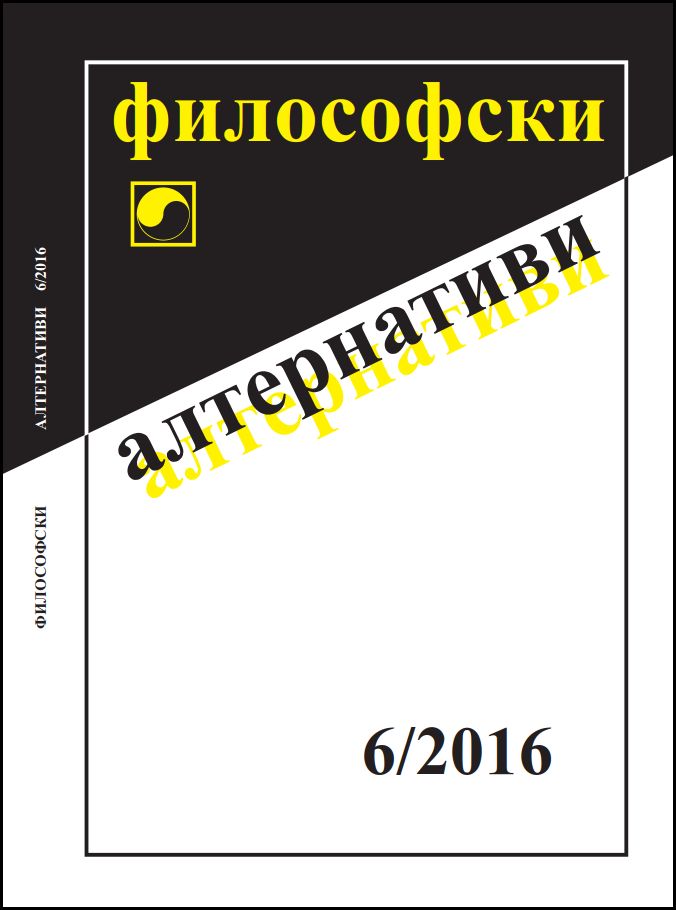
Появата на философско общество от кориците на книга
The article investigates the relationship between Wolf and Societas Alethophilorum.
More...We kindly inform you that, as long as the subject affiliation of our 300.000+ articles is in progress, you might get unsufficient or no results on your third level or second level search. In this case, please broaden your search criteria.

The article investigates the relationship between Wolf and Societas Alethophilorum.
More...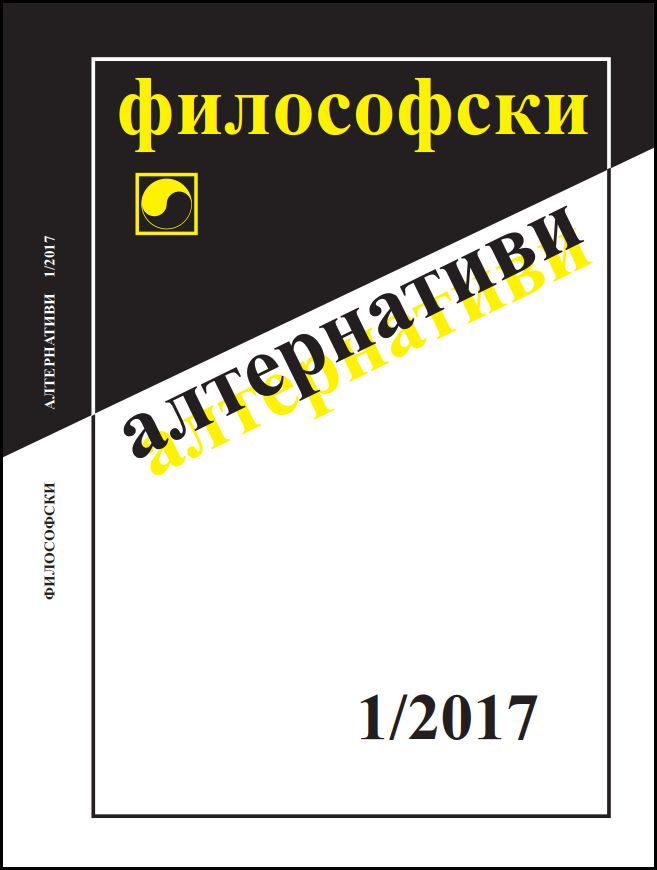
The paper discusses Leibniz’s project for a lingua universalis undertaken in his first period, 1666- 1679, when he was enthusiastic about the possibility of creating a universal language based on the “alphabet of human thought”, which he viewed as the “most important instrument for the perfection of the human mind”. The article analyzes the main issue confronted by the young Leibniz, i.e., the creation of a list of “primitive notions”, also discussed by Descartes in his letter to Mersenne from 20th November 1629. Leibniz’s response to the issues raised by Descartes is outlined together with how he resolved them by means of the theory of so-called “blind thought” (cogitatio caeca). The article concludes with a brief account of the influence these ideas in Leibniz’s work had on the 19th century pioneers of modern logic.
More...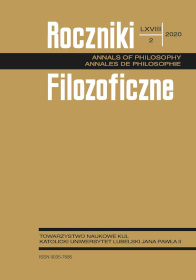

Descartes’s epistemology is rooted in his profound interest in and respect for what might be called intellectual experience, especially lucid intellectual experience. (Lucid intellectual experience is my term for what Descartes calls perceiving clearly and distinctly.) This interest, it seems to me, was shared by Descartes’s rationalist successors Spinoza and Leibniz. In the first part of this paper, I locate the phenomenon of lucid intellectual experience, focusing on Descartes and Spinoza. I try to show if we do not give enough attention to the character of such experience, we risk losing touch with a central motivation behind their respective epistemologies. In the second part of the paper, I consider intellectual experience in the context of skeptical doubt, particularly radical doubt. Although Descartes and Spinoza are often taken to be opposed here, I think they share more than is commonly appreciated.
More...
The topic of the paper is the notion of intuition in Descartes’ philosophy and its epistemic functions. Descartes introduces his notion of intuition in the context of a description of his method and process of knowing and doing science. Intuition is a significant component of this process. I intend to show that the main epistemic functions of intuition in Descartes’ philosophy are differentiated. Intuition is essential not only in the context of justification (the Cartesian synthetic method of proof) but also and especially in the context of discovery (the Cartesian analytic method of discovery). It plays not only a role in the foundation of the cogito but also on different stages of constructing the system of knowledge. Intuition has important functions in grasping simple natures, forming primary concepts, comprehending complex natures, forming primary propositions (including primary principles), and capturing relationships between them and building deductive reasoning (the role of intuition in deduction). Hence, intuition is the foundation for all primary stages of producing knowledge. It is active and important element of pure thinking (a priori) in human knowledge, and science. It fulfils these functions due to its specific epistemic properties. I also argue that intuition is not an autonomous and complete type of knowledge. Nor is it an intuitive thesis, but rather the basis of a justification for theses (including the cogito).
More...
In this article, I discuss the epistemic role that Descartes believed was played in knowledge construction by current clear and distinct perceptions (the ideas or propositions which appear most evident to us when we are attending to them). In recent literature, we can find two interpretations about the epistemic status and function of current clear and distinct perceptions in Descartes’ epistemology. The first may be called the psychological, the second normative. The latter states that current clear and distinct perceptions are utterly immune to all doubt, even before God’s existence is proven and the general rule of truth is established. Thus, their certainty is for Descartes not merely psychological, but normative. I endorse the normative interpretation for a number of what I believe to be cogent reasons. However, there are also some difficulties with it. Therefore, after presenting positive arguments for the interpretation (sections I–IV) I discuss the difficulties of textual and substantive nature that the normative interpretation needs to address if it is to be upheld (sections V–VI).
More...
We offer a novel interpretation of the argumentative role that Meditation IV plays within the whole of the Meditations. This new interpretation clarifies several otherwise head-scratching claims that Descartes makes about Meditation IV, and it fully exonerates the Fourth Meditation from either raising or exacerbating Descartes’ circularity problems.
More...
This paper discusses the epistemic status of bodily sensations—especially the sensations of pain, hunger and thirst—in the second part of Descartes’ Sixth Meditation. It is argued that this part is an integral component of Descartes overall purely epistemological project in the Meditations. Surprisingly perhaps, in contrast with his standardly taken infallible, internalist and foundationalist position, Descartes adopts a fallibilist, externalist and reliabilist position as regards the knowledge and beliefs based on bodily sensations. The argument for this conclusion is justified by an analysis of both the criterion of nature’s teachings and the concept of true errors of nature in terms of Wilfrid Sellars’ distinction between the logical space of reasons and the empirical space of causes.
More...
Many contemporary social epistemologists take themselves to be combatting an individualist approach to knowledge typified by Descartes. Although I agree that Descartes presents an individualist picture of scientific knowledge, he does allow some practical roles for reliance on the testimony and beliefs of others. More importantly, however, his reasons for committing to individualism raise important issues for social epistemology, particularly about how reliance on mere testimony can propagate prejudices and inhibit genuine understanding. The implications of his views are worked out more fully by some of his immediate successors; I examine how François Poulain de la Barre, and (briefly) Mary Astell analyze the social conditions for epistemic agency in a Cartesian vein.
More...
In this article I endeavour to present the axis of the dispute between Hobbes and Descartes on the ground of Meditation, and its most important moments. I focus primarily on the analysis of the most important accusations made by Hobbes and the reconstruction of some of his views, which at the time could only be found in The Elements of Law, Nature, and Politics. This work was the first major and coherent attempt to speak out on cognitive-theory and social issues; I strive to defend the thesis that understanding the content of Objections requires knowledge of this work. The mature form of the work shows that the Englishman already had his views well thought-out and could feel quite confident in formulating from their perspective critical remarks on Descartes’s philosophy, to which, it seems, he may have owed quite a lot.
More...
This article focuses on the relationship between the conceptions of personal identity presented by Descartes and by Locke. Contrary to common readings, I claim that the difference between them cannot be reduced to a simple contrast between rational substantialism and genetic empiricism. Locke does not resign from the substantialist position but delimits the two spheres: natural cognition with its foundation in experience and philosophical speculations, in which he tries to present a rational interpretation of religious dogmas which is consistent with his epistemological programme. Locke’s criticism is directed against the Cartesian notion of a thinking thing as a substance independent of the body and his description of the differentiation of experience and his depiction of human subjectivity is expanded in relation to Cartesian philosophy: personal identity gains explication at four complementary levels: psychological, biological, socio-legal, and religious.
More...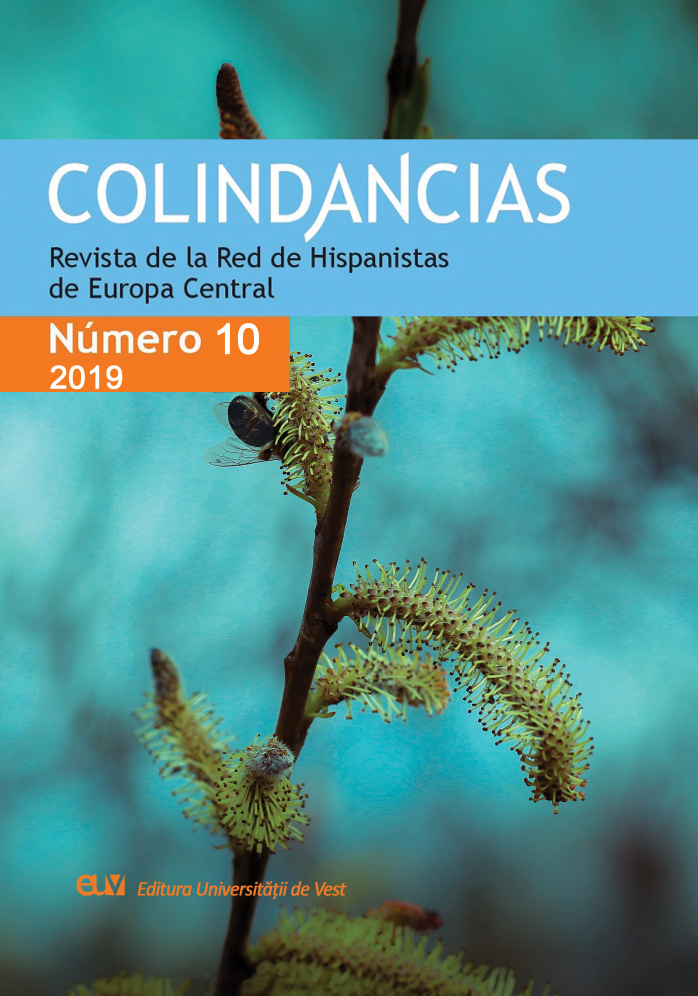
Resumen: El presente estudio se propone presentar una síntesis didáctica destinada a profesores de literatura española medieval y renacentista en torno a Cárcel de amor, obra en la que confluyen las corrientes de la teoría amorosa que estaban vigentes en la época de su creación: el amor cortés, el petrarquismo y el neoplatonismo humanista en sus albores. La premisa de la cual partimos es que los Cancioneros castellanos permitieron la configuración de un corpus textual en el que el amor humano comienza a emplear expresamente el lenguaje religioso. Se trata de unas convenciones artificiales del género que encubren una actitud reverente haciala realización de un amor puro y perfecto. Según apunta Alexander Augustine Parker, la diferencia esencial entre la poesía que canta el placer sexual del amor caballeresco y la que celebra el deseo no realizado en el amor cortés radica justamente en que la última emplea un código poético muy similar al amor sagrado. Por su parte, Keith Whinnom apunta hacia la imposibilidad, como es lógico, de que se haya conservado íntegramente en la época en que escribe Diego de San Pedro la filosofía del amor cortés tal y como se había definido doscientos años antes, en la época de los trovadores. Abstract: The current study aims to present a synthesis of didactic content for Medieval and Renaissance Spanish literature teachers focused on Cárcel de amor, a major work of the 15th century which can be read as an amalgam of the love theory trends that were available at the time: courtly love, Petrarchism and Humanistic Neoplatonism at its dawn. Our primary premise is thefollowing: Spanish Cancioneros allowed the configuration of a corpus of texts in which human love begins to expressly employ religious vocabulary. It refers to a series of artificial conventions of the genre, which enclose a reverent attitude towards the realization of pure and perfect love. According to Alexander Augustine Parker, the essential difference between the poetry that chants the sexual pleasure of chivalry love and the poetry celebrating the unfulfilled desire in the courtly love consists precisely in the fact that the latter employs a poetic code that is very similar to the sacred one. Keith Whinnom, for his part, points out to the impossibility of the courtly love philosophy to have been preserved entirely since the epoch of troubadours.
More...
The concept of human nature in Machiavelli’s work can be discussed on two levels. The first level regards its fundamental anthropological pessimism. The starting points of Machiavelli’s political philosophy is that people are inclined by nature to be evil, which, as quoted in The Discourses on Livy, must be taken as a starting assumption by every legislator. On the second level, the nature of a particular man is essentially unchangeable, and thus when it agrees with the times, he succeeds (Pope Julius II being an example), and when a man is in contradiction with what is required by the context, failure is inevitable. Many examples from Machiavelli’s work show that his pessimistic insight into human nature is the foundation upon which his entire political theory is built. The human nature, prone to evil and selfishness, is the explanation for the creation of communities, laws and state institutions, but also for the dynamics that lead to their decay and destruction.
More...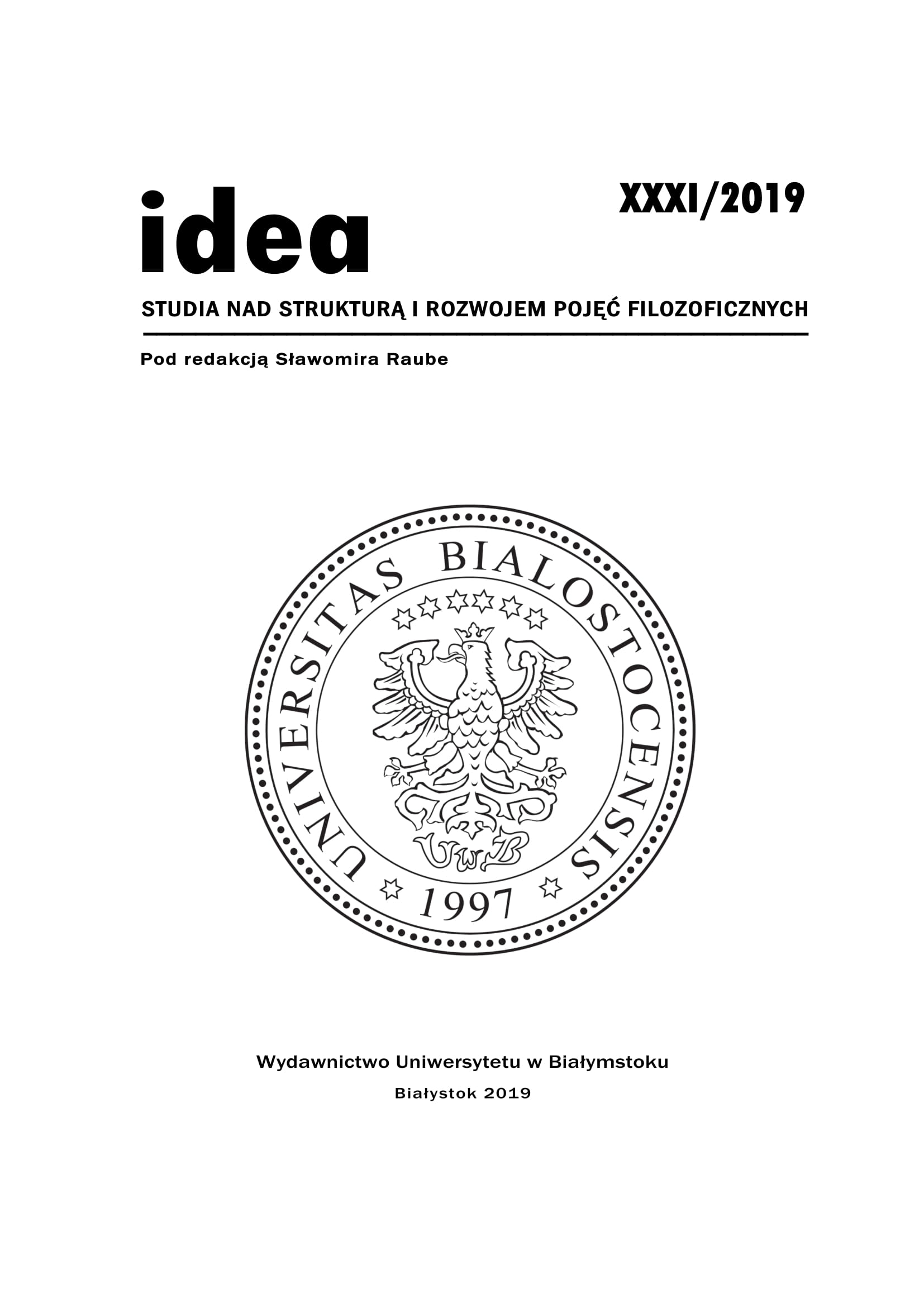
The paper discusses the question of human subjectivity as defined by René Descartes (1596-1650) and Jacques Lacan (1901-1981). It examines the similarities as well as differences between the selfconscious and rational Cartesian subject, and the unconscious Lacanian subject (subject as desire and subject as drive). Further, it applies these categories to the subsequent discussion on the psychotic subject. Taking a rhetorical perspective means that the Cartesian and Lacanian subjects are considered an effect of specific tropological processes, such as the mechanisms of metonymy, synecdoche, metaphor, or catachresis. As it turns out, an analysis of rhetorical tropes allows us to uncover the unconscious linguistic mechanisms governing the formation of the human subject. Despite the obvious differences between the concepts of subjectivity in Cartesian philosophy and Lacanian psychoanalysis, there is a common denominator: it is due to the process of metaphorical substitution that the human subject comes into being.
More...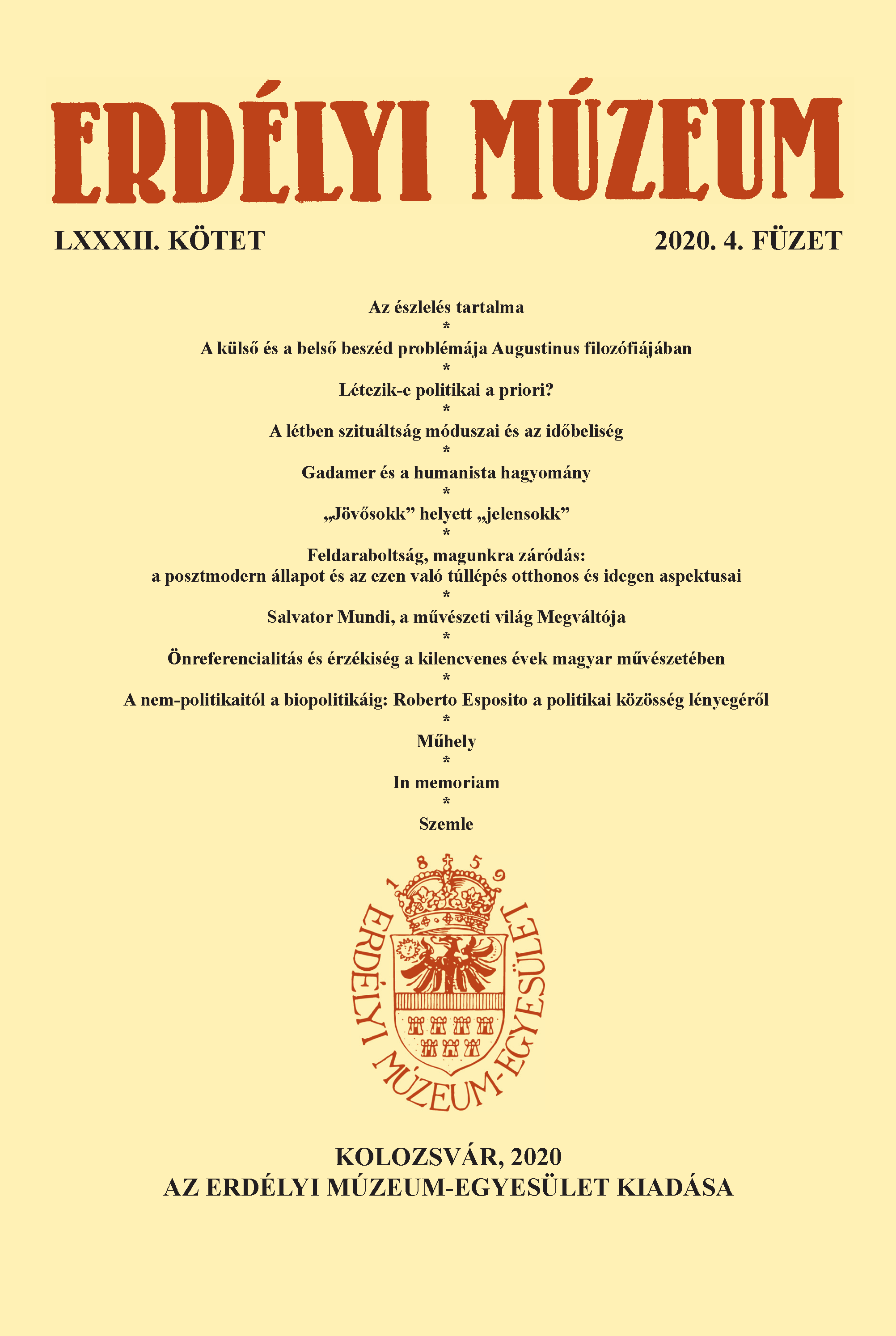
Art – in a certain sense - was born in the era of Renaissance. At least two explicative paradigms about art have appeared since the Renaissance, and we might be witnessing the appearance of a new one. The story of Salvador Mundi, found in 2005 and attributed to Leonardo, highlights the artworld’s expectations, possibilities, and challenges on the one hand; while on the other hand, it shows how art institutions function. These aspects may be of interest mainly to art historians. However, if a curator decides to exhibit a contemporary copy of Salvator Mundi in a museum, his/her gesture raises art philosophical issues.
More...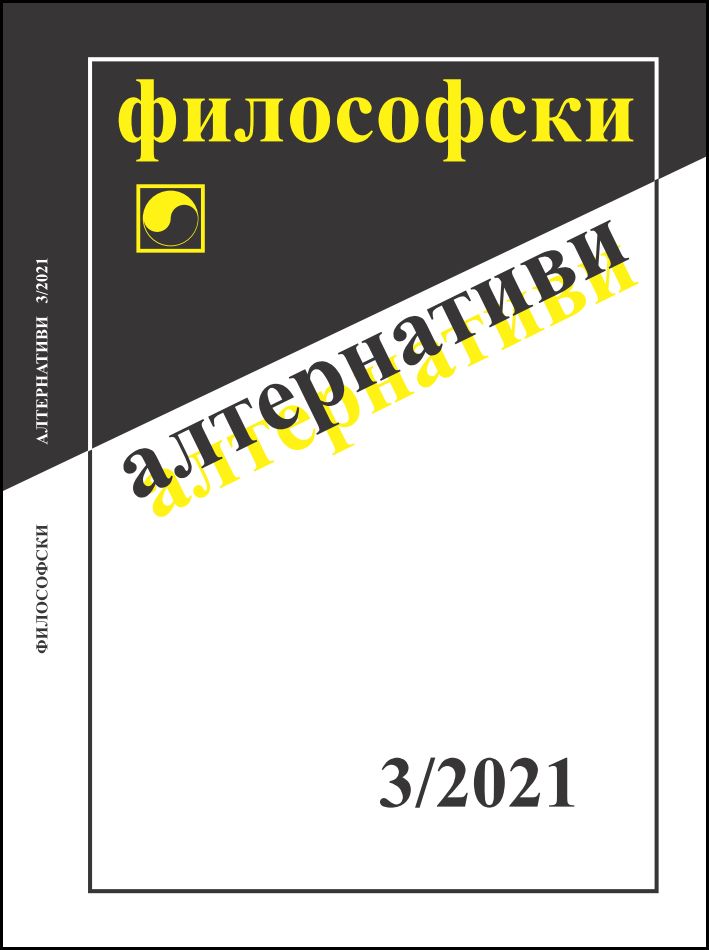
This article addresses the problem of the position of the Spanish theologian and philosopher Francisco Suárez (1548–1617) in the history of philosophy, delineating the main parameters of his system and establishing the profound influence he has on modern philosophers. The author examines the parallel views that produce ties of continuity between René Descartes and Francisco Suárez. The article devotes attention to Suarez’s conception of “formal concept”, which leads to a new interpretation of truth that differs from the Thomistic one. The author reaches the conclusion that the essentialism, logicism and subjectivism in the epistemology and ontology of the scholastic philosopher from Salamanca condition to a significant degree the development and specific contents of modern philosophical though. This conclusion, repeatedly noted by Heidegger, poses the question of the need to reconsider Suarez’s place in the history of philosophy.
More...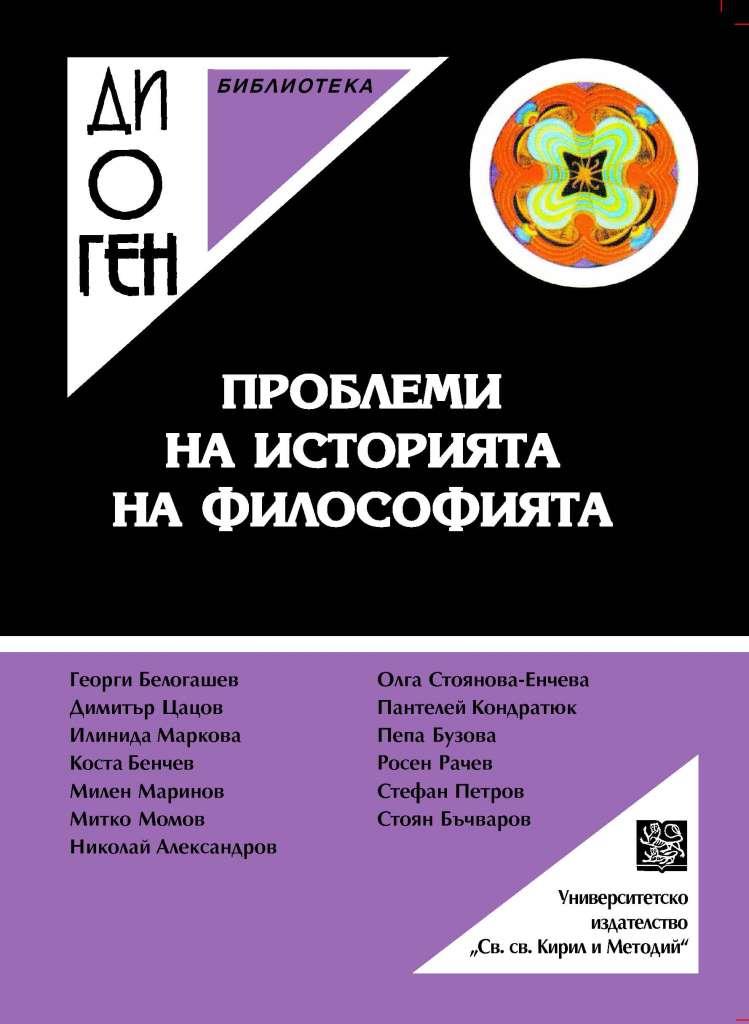
This article deals with the stages in the attitude of Western scholars to Eastern philosophy
More...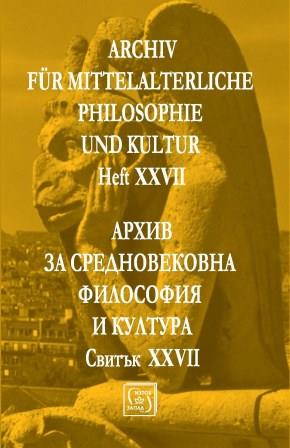
The purpose of this text is to present the historical and political thought of the florentine politician, historian and thinker Francesco Guicciardini (1483–1540), who in his works observes and analyses the crisis and the decline of the glorious “golden age” of Florence and Italy, known later as Renaissance. The text shows that Guicciardini also marks a point of departure for a distinctively modern understanding of history and politics and tries to clarify what the novelty consists of.
More...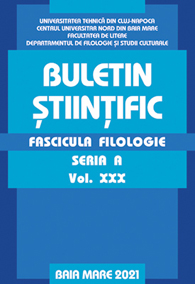
The modern period was a historical space characterized by an effervescence of ideas, in both the field of science and the fields of arts, philosophy or literature. On the other hand, however, this was a period of social unrest, of conflicts, which were meant to change the old order with a new one, moulded on the new values. The emergence of utilitarianism and classical liberalism, with the discourse based on the importance of freedom, equality, individual development, but also the usefulness of the human being on the social level, cumulated with other changes of that epoch, directed researchers to the social universe and the problems of ordinary people, leading to the emergence of the social sciences. The present study aims to illustrate, in a concise manner, the significance that modern philosophical ideas, artistic currents and values had on the development of human- centred sciences.
More...
One of the most important personalities of the English Renaissance, William Shakespeare, is the greatest writer I am going to treat about in the following lines. He was a poet and a dramatist and has been regarded as the greatest writer in English language. Being often called “The Bard of Avon”, William Shakespeare has a very wide and complex work, which consists of 38 plays, 154 sonnets, two long narrative poems, and several other poems. His plays have been translated into every major living language and are performed more often than those of any other playwright.
More...